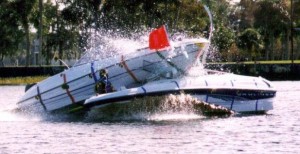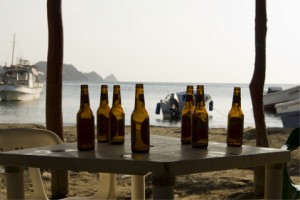Minnesota Boat Repair
Looking forward to relaxing on the boat this weekend with that ice chest full of cold beer? You might want to reconsider. Minnesota Department of Natural Resources officers and other authorities will be out in full force this weekend (beginning Friday, June 28 and continuing through June 30) cracking down on drunken boaters. Everyone should be able to enjoy boating. Curbing the number of alcohol and drug-related boating accidents and fatalities is key to achieving a safer and more enjoyable environment for recreational boating.
Consider Yourself Warned!
The effort is called Operation Dry Water, which is a nationwide effort to give boating under the influence, or BUI, high visibility the weekend prior to the Fourth of July holiday and peak summer boating season. So, boaters should think twice before having a cocktail on the water this weekend.
Avoid a Boating Accident this Fourth of July
Boating accident data shows that more boating accidents occur during Fourth of July than any others during the summer boating season. So authorities are reminding boaters to use caution on the water.
Minnesotans are avid boaters, as evidenced by the state having the highest per-capita boat ownership in the nation. About half of Minnesota’s boaters live in the Twin Cities metropolitan area. Twin Cities’ boaters find the nearby lakes and rivers convenient and enjoyable places for after-work and weekend outings. Boating on Twin Cities’ waters, however, is different than boating in other parts of the state. It is more congested and, as a result, more regulated. In short, the experience of boating in the metropolitan area is distinctive.
The Twin Cities region has nearly 58,000 acres of boating water on 102 lakes. These lakes are the major recreational boating and fishing waters of the region. The larger lakes (e.g., Minnetonka, other large boating lakes) tend to have a higher intensity of boating than the smaller lakes, and urban lakes are used more intensely than rural lakes (Figure 3). Lakes without public access are used the least intensively.
Weekends/holidays are the popular time to participate in boating, as well as in most outdoor recreation pursuits. A weekend or holiday, on average, has about 2.5 to 3 times as much boating as a weekday. Since weekdays are more frequent than weekends/holidays, weekdays end up accounting for about 40 to 45 percent of total boating and weekends/holidays for 55 to 60 percent.
It is also when most boating accidents happen.
Impaired boating is one of the leading factors for boating accidents and injuries in Minnesota and across the nation. In 2012, alcohol was a contributing factor in 33 percent of the deadly boating accidents in the state. Impairment plus untrained vessel operators cause a lot of preventable misery and destruction on our lakes.
Boating and Boozing
Boats, booze and water activities do not mix. It’s as simple as that! It does not matter whether you are swimming, boating, water skiing, or fishing. These activities are for recreation and enjoyment. However, because they occur in, on and around water, they require special attention. Using alcohol and/or drugs makes these activities dangerous. If you do use intoxicants, do not go near the water.
Boating Stress Factors
Boaters are exposed to significant “stressors.” These are wind, sun, glare, noise, motion from the water, and vibration. Research has proven that as little as four hours of exposure to these stressors produces “boater’s hypnosis.” Boater’s hypnosis is a type of fatigue that slows operator reaction time comparable to that exhibited by an intoxicated person.
In Minnesota, there is zero tolerance for anyone found operating a boat under the influence of alcohol or drugs on our waters. No one should ever get hurt or even die because a boat operator decided to drink alcohol.
Operating a boat with a blood alcohol level (BAC) .08 or higher is against the law.
It’s commonly known that alcohol and drugs impair a boater’s judgment, but adding the sun, noise and waves could be a potentially deadly combination on the water.
There are severe consequences for boating while intoxicated. Boaters caught operating under the influence will find their day on the water come to an end and their boat will be impounded. Additional penalties can include arrest, fines and loss of boating privileges. But authorities would rather arrest someone than to have to tell their friends and family that they’re never coming home.
Operation Dry Water is sponsored by the National Association of State Boating Law Administrators in partnership with the U.S. Coast Guard.



